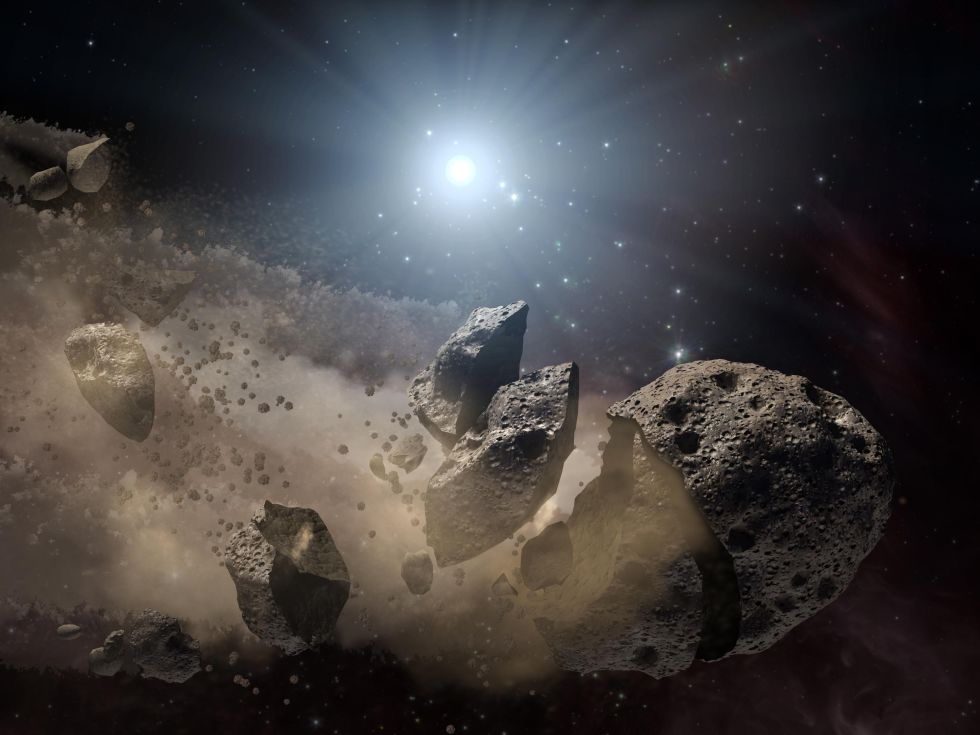Stopping killer asteroids costs less than you think

Scientists think a giant asteroid broke up long ago in the main asteroid belt before eventually striking Earth 65 million years ago and wiping out the dinosaurs. (credit: NASA/JPL-Caltech)
An asteroid some seven meters across swooped to within a few hundred thousand kilometers of Earth on Halloween, and the collective public reaction registered as barely more than a snigger. Various news stories called the rock "spooky" or the "The Great Pumpkin," dismissing it as yet another near miss while we celebrated the holiday with costumes and candy. The sobering reality is that, only three weeks before its closest approach, Earth-based observers discovered a rock that could dissipate many times the energy of the Hiroshima blast in the atmosphere.
We view ourselves as a modern civilization, with dazzling rocket launches and pocket computers that allow us to communicate with anyone, anywhere in the world. Yet when it comes to detecting and deflecting asteroids, we are little better than our ancestors who evolved in Africa some 200,000 years ago. We can look up into the sky, see the bright fireball, and if we're close enough to the impact, we will die. Just like them, except we might be able to tweet about the end of the world.
Unlike our ancestors, however, we actually have the technology to prevent such a calamity. For about $1 billion we could build an infrared space telescope to find all of the asteroids that threaten Earth, and we could then fly a mission to demonstrate our capacity to deflect one. NASA, in fact, could fund such efforts with about one percent of its annual budget over the next five years. The price of planetary insurance, it turns out, isn't all that high.
Read 36 remaining paragraphs | Comments